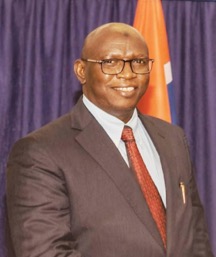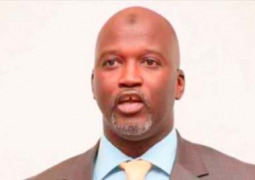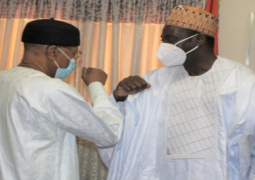
These roles, he said, can be categorised under security, political, economic and technological matters among others.
DG Sowe was speaking on Tuesday at the opening of the Federation of Gambia Muslims Youths 2024 (FEGAMY) – convergence held at the Sir Dawda International Conference Centre under the theme: ‘Combating gambling and drugs in the Senegambia region’.
The theme for this year’s event, Sowe went on, was apt and relates to what can be described as an “internal national security concern or threat.”
National security, Sowe said is a “precondition for sustainable economic and political development. Therefore, for such a condition to be attained, the state has a fundamental obligation to provide security, create a conducive environment as well as protect, respect and ensure the rights of its citizenry.”
Defining national security in the context of human Security, he said, “national security is all encompassing, in which people and communities live in freedom, peace and safety, participate fully in governance of their country, enjoy the protection of fundamental rights; have access to resources and the basic necessities of life and inhabit an environment which is not detrimental to their health and well-being.”
He maintained that the security of the people and the security of the state are mutually reinforcing.
“As youth, you can act as the eyes and ears of the nation by staying vigilant and reporting suspicious activities or potential threats to the authorities. Your active participation in community watch programmes or online platforms can help in early detection of security risks.”
“Additionally, you can educate your peers and communities about national security issues, promoting awareness and understanding of the importance of security measures. As youth, you can also advocate for policies and practices that enhance national security while balancing individual freedoms.”
“Also, as youth, you can serve in the military, police, or other defence forces, thereby directly contributing to the protection of the country. Your energy, physical fitness, and enthusiasm are valuable assets in these roles.”
On the issues of cyber security, he said: “As digital natives, the youth are well-positioned to engage in cyber-security efforts. You can help protect national infrastructure from cyber-attacks, counter misinformation, and engage in ethical hacking to identify and fix security vulnerabilities.”
Political roles
Commenting on the political roles of young people, he said: “Through engagement in community service, youth can help address social issues such as poverty, unemployment, and inequality, which can be the root causes of unrest and insecurity. Promoting peace, tolerance, and understanding within communities helps create a more secure environment.”
“Youth can also participate in the political process by voting, running for office, or supporting policies that enhance national security. Hence, your involvement ensures that the government reflects the needs and concerns of the younger generation.”
Countering Extremist Narratives:
On the issue of countering extremism, he said, youth can create and share counter-narratives to extremist propaganda, adding: “Through blogs, videos, social media posts, and other digital content, you can challenge the ideologies of terrorist groups and offer positive, inclusive messages.”
“Therefore, in today’s digital age, youth can engage in online activism to counter extremist narratives, reporting extremist content, and spreading awareness about the realities of terrorism. This helps to prevent the spread of extremist ideologies online.”
Promoting Peace and Tolerance
“The youth can also participate in or organise interfaith and intercultural dialogue initiatives, promoting mutual understanding and respect among different communities. These efforts help to reduce the tensions that can lead to violence and terrorism,” he emphasised.
Sowe concluded: “By advocating for peace education in schools and communities, youth can help instill values of non-violence, conflict resolution, and respect for diversity, reducing the appeal of extremist ideologies.”




